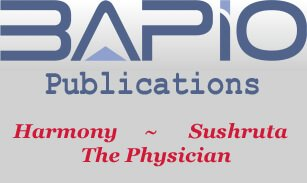FIRMST2020-AB39
RATIONAL USE OF MEDICINE AMONGST POSTGRADUATES AND INTERNS IN A TEACHING HOSPITAL
FIRMST2020-AB39
RATIONAL USE OF MEDICINE AMONGST POSTGRADUATES AND INTERNS IN A TEACHING HOSPITAL
Sakshi BHARATI1, Kavitha VIVEK1, Vaishal THAKARE1,
Deepak LANGADE1
1 DY Patil University School of Medicine, Navi Mumbai, India
Aim: To evaluate knowledge, attitude and practices of rational use of medicine amongst post graduates and interns in a tertiary care teaching hospital.
Keywords: Rational use of medicines, Essential medicines, P-drug conceptcorrespondence to: sakshibharati@gmail.comNo conflict of interest declaredArticle InformationDOI:
10.38192/1.6.3.firmst20.ab39Epub: 04.01.2021Presented at FIRMST Conference, Moscow 2020Peer reviewed by JS Bamrah, Ananthakrishnan Raghuraman, Soumit DasguptaOpen Access- Creative Commons Licence CC-BY-ND-4.0
Background:
Prescribing is a complex and challenging task which must be based on accurate and objective information and not automated action. Rational use of drugs require that patients receive medication appropriate to their clinical needs, in doses that meet their own individual requirements for an adequate period of time and at lowest cost to them and their community. Worldwide; irrational Prescribing and polypharmacy have been identified as major cause of poor prescription.Hence, the present study was conducted.
Methods:
A cross sectional observational study was conducted among 100 postgraduate and interns at Dr D.Y. Patil School of Medicine, Navi Mumbai. Data was collected using a pre validated, self administered questionnaire. Descriptive statistics were used to analyse the data.
Result:
A total of 100 interns and postgraduates participated in this study. 20% always prescribed essential medicines, while 30% occasionally did so. 53% always prescribe medicine taking into consideration adverse effects, interactions and contradictions 24% prefer writing generic names of medicine while Prescribing, 34% prefer trade names, 42% prefer both, 20% prefer prescribing old drugs, 10% prefer new drugs while 70% prefer both.
Conclusion:
In the present study majority of respondents were not aware about most of the issues concerned with RUM addressing questionnaire which shows inadequate knowledge about the same, but being future prescribers all of them need to have adequate knowledge about all of the issues addressed. Although the concept of RUM is included in undergraduate curriculum more vigorous training regarding the same is required to strengthen the mechanism for continuing professional development of clinicians to update their knowledge and skills to prescribe drugs rationally.
If you are interested in publishing your conference abstracts with us
If you are interested in publishing your conference abstracts with us
Please contac the editorial board for peer review and publication in the The Physician Journal of International Health



